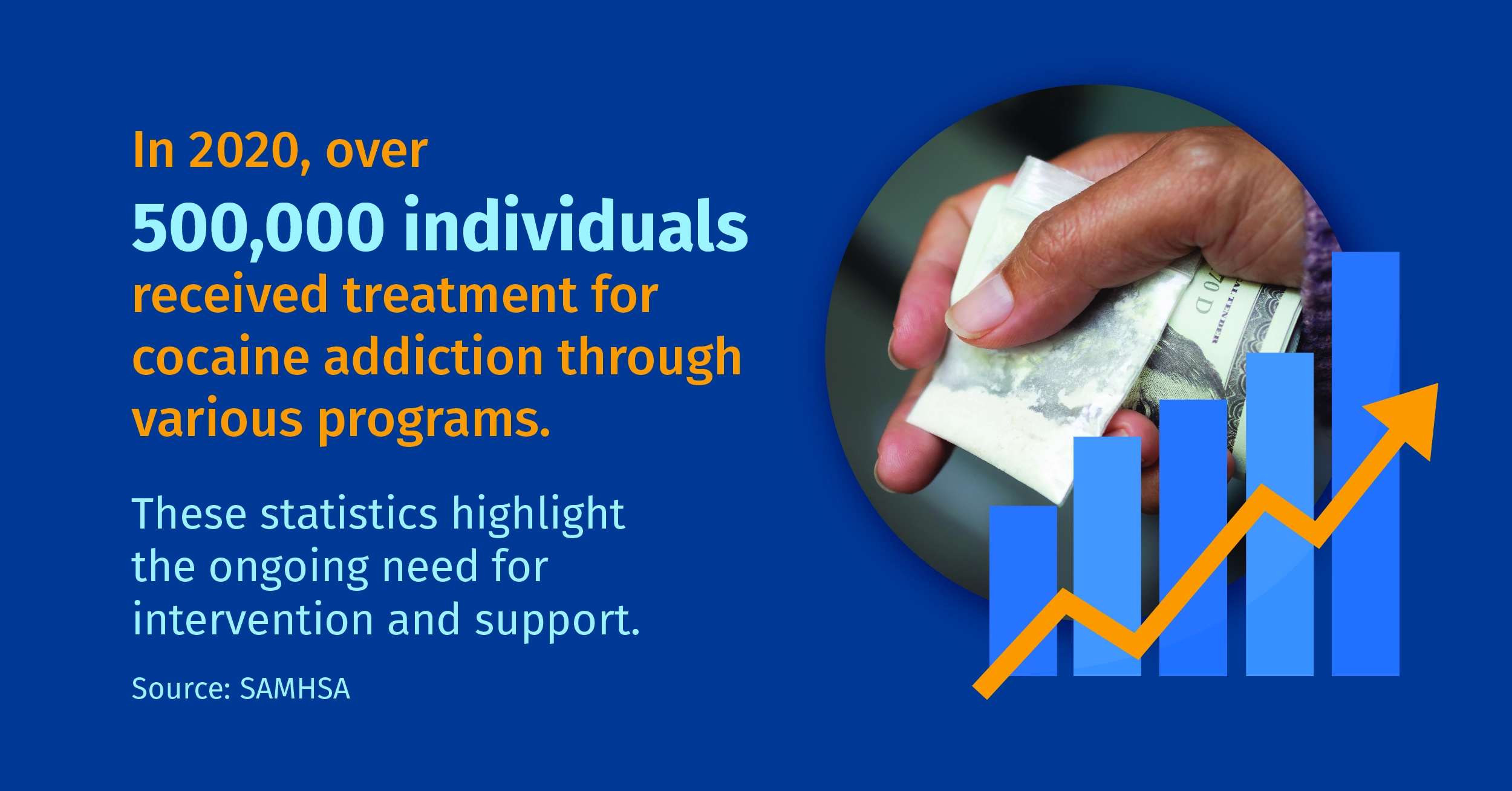
Effectiveness Of Medication-Assisted Treatment
Explore the effectiveness of medication-assisted treatment with The Recovery Team-Newton.

Cocaine addiction begins quietly. It lures its victims through experimentation, often in social settings or as an escape from life’s pressures. Unknown to many, it morphs into a relentless companion.
Getting out of this complicated situation requires professional help, including therapy, counseling, and peer support.
Cocaine addiction traps individuals nationwide, starting with subtle experimentation in social settings or as an escape from life’s pressures.
The Recovery Team-Newton is known for its comprehensive addiction treatment programs. Call us at (800) 817-1247 to find support on the path to recovery.
Policymakers, healthcare professionals, and the general public must understand the extent of cocaine addiction. According to the National Institute on Drug Abuse (NIDA), in 2019, approximately 5.5 million people aged 12 and older had abused cocaine in the past year, with around 966,000 individuals meeting the criteria for cocaine use disorder.
Substance Abuse and Mental Health Services Administration (SAMHSA) data indicates that in 2020, over 500,000 individuals received treatment for cocaine addiction through various programs. These statistics highlight the ongoing need for intervention and support.
It is crucial to address cocaine addiction through evidence-based policies and targeted interventions to combat this public health issue effectively.
Leaves of the coca plant produce cocaine. The leaves are processed into various forms, including pure cocaine hydrochloride salt and potent crack cocaine. High doses of cocaine can lead to severe health risks, including an increased likelihood of stroke, making it a dangerous and addictive substance.
Cocaine, a powerful stimulant drug, exerts both short-term and long-term effects on the mind and body. Here are a few effects of cocaine use:
Individuals considering using cocaine or supporting those struggling with cocaine addiction should understand the risks of using this drug.
Cocaine addiction is a challenging condition that often goes unnoticed until it reaches a critical stage. The signs of cocaine addiction, whether physical, psychological, or behavioral, must be identified for early intervention and support.
If you suspect someone facing cocaine addiction, approach them with compassion and encourage them to seek professional help.
Cocaine addiction is a complex and challenging condition that requires specialized treatment to facilitate recovery. Various approaches are available, tailored to individual needs and circumstances.
Outpatient programs offer counseling and therapy sessions where individuals can preach the root causes of their addiction, develop coping strategies, and set recovery goals.
Outpatient treatment allows individuals to maintain their daily routines, such as work or school while receiving the necessary support. This flexibility is vital for those with responsibilities and obligations that cannot be deferred. Group therapy sessions provide peer support and a sense of community, helping individuals feel less isolated in their journey to recovery.
Medication-assisted treatment combines medication with counseling and therapy. Medications like disulfiram, topiramate, or modafinil can help reduce cravings and withdrawal symptoms.
MAT addresses addiction’s physical and psychological aspects, increasing the chances of successful recovery. Medications are closely monitored by healthcare providers who adjust dosages as needed to optimize effectiveness.
Many individuals with cocaine addiction also struggle with mental health issues like depression or anxiety. Dual diagnosis treatment addresses both addiction and underlying mental health disorders.
Dual diagnosis treatment aims for sustained recovery by addressing the factors that may have contributed to addiction in the first place. It combines addiction and mental health treatment into a comprehensive plan, ensuring that both aspects are treated simultaneously.
The proper treatment depends on individual circumstances and addiction severity. Consult with an addiction specialist to determine the most suitable treatment plan.
Supporting a loved one through addiction can be challenging but essential for recovery. Here’s how to help:
Cocaine usage, whether in the form of cocaine hydrochloride (white powder) or crack cocaine (crystalline substance), yields distinct effects. In the short term, users experience euphoria, heightened alertness, and dilated pupils.
However, it also raises the risk of heart attack, sudden death, and erratic behavior. In the long term, chronic use can lead to severe heart and respiratory issues, addiction, financial ruin, and strained relationships.
While cocaine, in its various forms like cocaine powder, rocks (crack), or crystalline powder, is primarily associated with illicit and recreational use, it does have some limited medicinal applications. Historically, it was used as a local anesthetic and vasoconstrictor for medical procedures. However, due to its high potential for addiction, cardiovascular risks, and association with the illegal drug trade, its medicinal use has been largely replaced by safer alternatives in the United States. It is a dangerous and illicit drug when used recreationally.
At The Recovery Team-Newton, we understand that addiction can be overwhelming in all its forms, whether alcohol, cocaine, or any other substance. That’s why we offer a range of effective treatment programs tailored to your unique needs.
We employ partial hospitalization programs, intensive outpatient programs, or medication-assisted treatment to help you break free from the chains of addiction.
Don’t let the side effects of addiction hold you back any longer. Let us guide you on your journey to recovery. Call us at (800) 817-1247 and step into a life filled with hope, strength, and endless possibilities.

Explore the effectiveness of medication-assisted treatment with The Recovery Team-Newton.

Explore the examples of dual diagnosis and its treatment plans for better outcomes with The Recovery Team-Newton.

Explore how long drug rehab programs are with the complete guide from The Recovery Team-Newton.